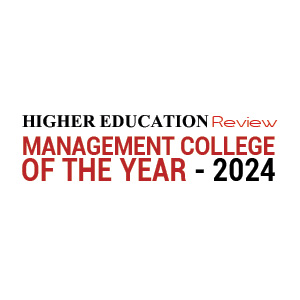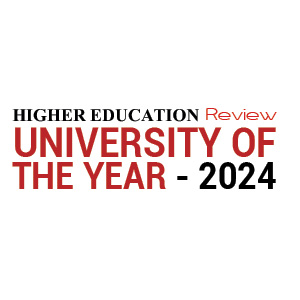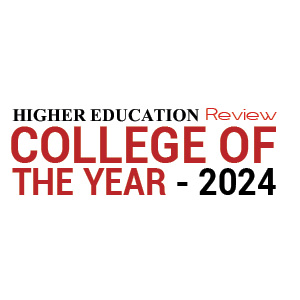Medhavi Skills University: Building Competitive Advantage For Students Through Comprehensive Industry Training
By Pravesh Dudani, Founder & Chancellor
India’s higher education landscape is witnessing a transformative shift with a growing emphasis on skill-based learning, industry integration, and digital advancements. All of these are in alignment with the objectives outlined by the National Education Policy (NEP) 2020. As a key player in this new era, Medhavi Skills University (MSU) is setting a benchmark for experiential learning, focusing on creating industry-ready professionals who are equipped with both technical and soft skills. MSU is creating new pathways for learning and skill development through the implementation of the NEP 2020. It has tied up with National Skill Development Corporation (NSDC) to utilize its Skill Training Centres. It is recognised by the National Council for Vocational Education and Training (NCVET) as an Awarding Body for NSQF aligned courses. MSU seeks to reshape higher education by intertwining hands-on training with industry-aligned academic learning.
A Needed Shift from Theory to Practical Skills
Historically, Indian higher education emphasized theoretical learning, with curricula often remaining stagnant, leaving graduates lacking practical skills for contemporary industries. Rapid advancements in technology, management, and industry standards outpaced traditional education, prompting many graduates to seek further training post-graduation. The NEP 2020 catalyzed transformative changes, cultivating flexibility, interdisciplinarity, and a strong focus on applied knowledge. In alignment with the new policies, MSU was established embodying this shift, prioritizing experiential learning. By regularly updating curricula and focusing on skill-based programs, it ensures graduates are equipped to thrive in today’s dynamic professional landscape.
MSU structures its curriculum on three foundational pillars that are aligned with industry needs. “We collaborate with over 500 industry partners across 10 disciplines to stay updated on sector advancements, shaping programs that reflect current practices and technologies. Also, our university maps specific job roles within industries, tailoring courses to develop the skills and competencies required for entry-level positions, such as prompt engineering, through specialized tracks within their BCA, BSc, and BTech programs. Finally, our faculty includes industry-experienced professors, whose teachings bridge the industry academia gap to provide students with practical insights and up-to-date expertise”, says Pravesh Dudani, Founder & Chancellor, MSU.
Emphasizing on On-the-Job Learning
At MSU, students learn in classrooms and apply their skills in real work environments. MSU’s ‘earn while
you learn’ model allows students to take up industry roles while pursuing their degrees, giving them valuable work experience and financial independence. This integrated model of theoretical learning followed by real-world application ensures that by the time students graduate, they have a solid grasp of how their skills apply practically. This approach has had positive outcomes, with many students receiving pre-placement offers from companies they interned with during their studies.
A notable example of MSU’s practical approach is a recent strategic meeting held at ITC Hotels, where the students were found to be working alongside full-time employees, managing various roles seamlessly. This highlights the practical exposure the university students receive, preparing them to step confidently into the workforce.
With ‘Industry-in-Campus’ and ‘Industry-as-Campus’ approaches, MSU’s curriculum emphasizes both hard and soft skill development to equip students with a comprehensive skill set. Recognizing that communication, critical thinking, and problem-solving are crucial, the university integrates these soft skills through interactive activities, discussions, and assessments, preparing graduates to navigate workplace dynamics and effectively present ideas. Technical competencies are also a priority, with programs like B.Tech in Computer Science offering specializations in AI and Machine Learning. Students gain hands-on training in tools like regression analysis, and essential programming languages such as Python and JavaScript, ensuring they’re industry-ready for cutting-edge tech roles.
Outcome-Based Education Approach
MSU’s alignment with the NEP’s Outcome-Based Education (OBE) model ensures that courses are structured around specific, measurable learning outcomes. Each course defines clear outcomes, detailing what students should achieve, with an emphasis on practical application. By incorporating experiential activities, the university ensures students develop real-world skills. The adoption of the National Credit Framework (NCrF) further supports structured learning assessment, assigning credits based on the nature of the study, one credit per 15 hours for theoretical learning, 30 for practical, and 45 for experiential. This framework ensures that graduates hold accredited skills that are recognized by employers, enhancing the value of their qualifications.
MSU’s partnerships with industry leaders like ITC Hotels, Crowne plaza, and Radisson in the hotel management sector provide students with hands-on training and apprenticeship stipends, building professional networks and practical knowledge. Collaborations in the fashion segment with NIFD Global, and technical training through Polaris School of Technology and Board Infinity, further enrich students’ learning experiences. These partnerships enable the university to deliver a curriculum deeply aligned with industry needs, equipping students for competitive, skill-driven roles in various fields.
Shaping Future-Ready Graduates
Medhavi Skills University’s unique approach to education aligns seamlessly with the NEP 2020 vision, creating an environment where practical skills, industry collaboration, and digital integration converge. The university prepares students to excel in today’s dynamic job market by focusing on outcome-based learning and robust industry partnerships. As India continues to evolve its education landscape, the university stands at the forefront, shaping graduates who are not only academically accomplished but also equipped with the practical skills and professional readiness to make meaningful contributions to their fields.
In conclusion, MSU’s innovative model, grounded in a practical, industry-aligned approach, is setting new benchmarks in skill-based education and paving the way for a more robust and responsive higher education system in India. The university’s focus on continuous curriculum updates, soft and technical skill development, and close industry ties positions its graduates to succeed, embodying the future of education envisioned.





